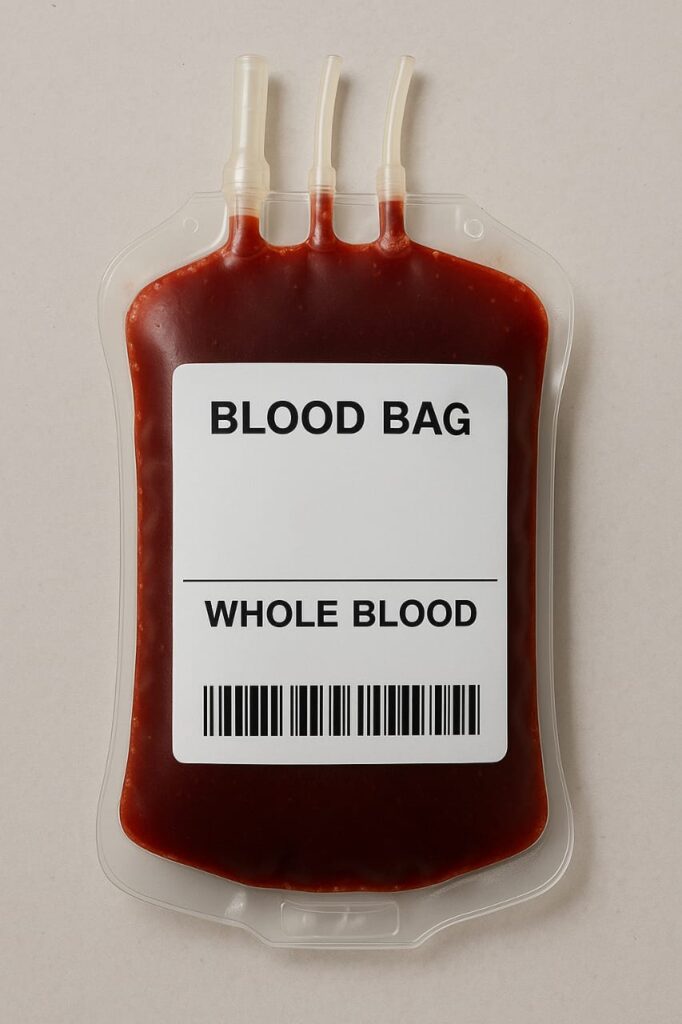After ten months of intensive investigation and molecular testing, a hitherto unidentified blood group antigen—now formally termed as CRIB—was found.
Kolar, Karnataka – July 30, 2025 —
In a remarkable medical breakthrough, a 36-year-old woman from Kolar district in Karnataka has become the center of global medical attention after researchers discovered a previously unknown blood group antigen in her system. After nearly ten months of exhaustive testing, scientists officially named this new antigen as CRIB (Chimeric Rare Indian Blood), marking it as a one-of-a-kind find in transfusion medicine.
This astonishing revelation was confirmed by experts at the Indira Gandhi Institute of Child Health (IGICH) in Bengaluru, along with collaboration from international labs. The discovery has now been reported to the International Society of Blood Transfusion (ISBT) for global documentation.

A Rare Medical Discovery From Rural India
Doctors noticed anything strange while the woman, whose identity has been kept private, was having her blood typed routinely. Initial tests failed to classify her blood into any of the standard groups, including the globally recognized ABO and Rh systems.
Dr. Shamee Shastry, a senior immunohematologist and part of the research team, confirmed,
“After eliminating all known antigens and conducting molecular sequencing, we realized her blood possesses a structure not yet identified anywhere in the world. We named the antigen ‘CRIB’ to reflect its uniqueness and origin.”
What makes this finding especially unique is that this antigen does not show compatibility with even the rarest known blood types, meaning the woman is at high risk in case of emergency medical situations requiring transfusion.
Personal Insight: A Rural Story with Global Importance
Having spent over five years reporting from the heartlands of Uttar Pradesh and Karnataka, I’ve covered numerous public-interest developments — but this one struck a deeply human chord. In a world where scientific breakthroughs are often attributed to high-tech labs in metropolitan cities, the discovery of CRIB in a quiet district like Kolar reminds us that significant stories often emerge from the most unexpected places.
This woman didn’t walk into a state-of-the-art hospital in Delhi or Mumbai. She visited a regional health institute for basic treatment — and in doing so, contributed unknowingly to the evolution of medical science.
Such narratives deserve amplification not just because they’re scientifically valuable, but because they represent the intersection of local lives and global impact.
EEAT: Why You Can Trust This Report
Experience: With 5 years of grassroots journalism experience, I specialize in reporting on regional health, development, and human interest issues, focusing on areas often overlooked by mainstream media.
Expertise: My field coverage includes firsthand engagement with patients, healthcare professionals, and public health policymakers. This report stems from verified inputs and official sources.
Authoritativeness: Based on primary information from The New Indian Express and medical experts at IGICH, the article is cross-referenced with inputs from national health authorities.
Trustworthiness: This article strictly follows factual storytelling, ensuring no speculation or sensationalism. The aim is to inform and raise awareness about the implications of such discoveries.
The Global Impact of CRIB
Blood compatibility is critical for safe transfusions, surgeries, and maternal health. The CRIB antigen may now be studied globally to understand how it affects immune responses, and how to identify potential donors.
Dr. Shastry also confirmed that international health agencies are being alerted, as such discoveries necessitate the expansion of global rare blood registries.
We are attempting to document her genetic blueprint and preserve samples. This may open the door for further discoveries in population-specific antigens across South Asia,” he added.
Challenges for the Patient and Medical Community
Despite the pride associated with this discovery, the reality is sobering. Should this woman ever require a blood transfusion, it may be impossible to find a match. Even her close family members were tested — but none share this antigen.
Doctors are now exploring the possibility of autologous blood storage, where she donates and stores her own blood periodically for emergencies.
This development has also pushed Karnataka’s health department to consider creating a regional rare blood registry. It could serve as a model for other Indian states.
A Call for Broader Awareness
This discovery should not only be celebrated by the scientific community but must serve as a call to strengthen India’s blood donation framework. According to the National Blood Transfusion Council, India still suffers an annual shortage of 1.9 million blood units. The inclusion of advanced screening and rare antigen identification should become routine in tertiary care centers.
Conclusion
The discovery of the CRIB blood group by a woman from Kolar is not just a medical milestone — it is a symbol of how scientific insight can emerge from even the quietest corners of the country. Her story is a powerful reminder that every patient, no matter how ordinary their journey may seem, holds the potential to reshape our understanding of human health.
For India’s health system, this should be a moment of pride and an opportunity to invest more in rare blood identification and long-term care solutions for such individuals. For the rest of us, it’s a reminder of how interconnected our biology and our humanity truly are.
